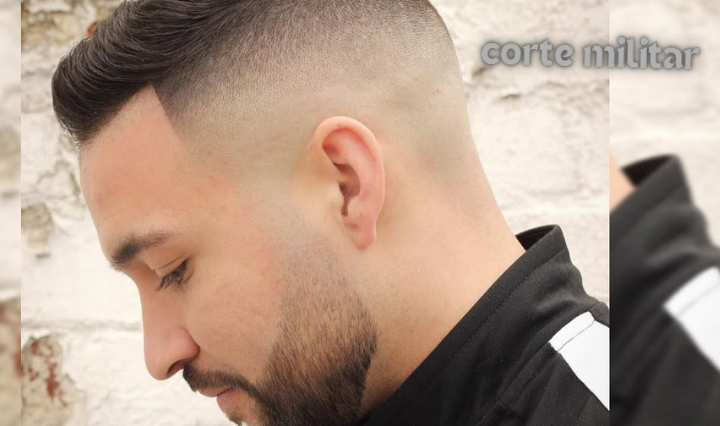Introduction
When you think of the military, you might imagine drills, combat, and strategy sessions. But what about the legal side of things? Enter the fascinating world of corte militar—the military court system. Whether you’re a history buff, a military enthusiast, or just curious about how justice is served in the armed forces, this guide will shed light on the inner workings of military courts, their historical evolution, and their role in today’s military environment.
What is Corte Militar?
So, what’s the deal with corte militar? Simply put, it’s the Spanish term for military courts or tribunals. These are specialized courts within the armed forces responsible for handling legal matters related to military personnel. Think of them as the military’s own legal system, designed to address crimes and offenses committed by service members, ranging from minor infractions to serious crimes.
Historical Evolution
Military courts have a long and storied history. They’ve evolved significantly over the centuries. Here’s a brief rundown:
- Ancient Times: Early military courts were rather basic, often focusing on maintaining discipline and order. Think of them as the first attempts at military justice.
- Medieval Period: Military courts started to become more structured. Laws were codified, and the rights of soldiers began to be recognized.
- Modern Era: Today’s military courts are highly structured, with a well-defined system for handling everything from petty crimes to serious offenses.
The Structure of Corte Militar
Military courts, or corte militar, aren’t just a one-size-fits-all deal. They come in various forms, each with specific roles and responsibilities:
1. Court-Martial
A court-martial is, a military court designed to handle serious offenses. Depending on the severity of the crime, it can be, divided into:
- Summary Court-Martial: Handles minor offenses and is, usually presided over by a single officer.
- Special Court-Martial: Deals with more serious offenses and typically involves a panel of officers.
- General Court-Martial: The most serious of the three, this court deals with the gravest offenses and includes a panel of senior officers and possibly enlisted personnel.
2. Military Appeals Court
If a service member believes their trial was unfair or the sentence was too harsh, they can appeal to a higher court. The Military Appeals Court reviews these cases to ensure justice was served.
3. Naval Courts
In naval forces, there are specific courts to handle offenses unique to maritime service. These courts follow similar principles to their army counterparts but with a focus on naval regulations and maritime law.
How Does Corte Militar Operate?
Now, let’s dive into the nitty-gritty of how these military courts operate:
1. Jurisdiction
Military courts have jurisdiction over offenses committed by service members, whether on or off duty. This includes violations of military law and certain civilian laws, especially if they affect the military’s order and discipline.
2. Legal Proceedings
The legal proceedings in a corte militar are quite structured:
- Investigation: When an offense is reported an investigation is launched. This could involve gathering evidence, interviewing witnesses, and more.
- Trial: The trial is, conducted based on military law. The accused has the right to a defense, and evidence is, presented to determine guilt or innocence.
- Appeal: If the accused believes the trial was unfair, they can appeal to a higher court.
3. Sentencing
Sentences in military courts can vary widely based on the offense. They can range from reprimands and fines to imprisonment or even discharge from service.
Why is Corte Militar Important?
You might wonder, why bother with a separate legal system for the military? Here’s why:
1. Maintaining Discipline
Discipline is crucial in the military. Corte militar helps maintain strict standards by addressing violations swiftly and fairly.
2. Specialized Knowledge
Military courts understand the unique challenges and environment of military life, allowing them to make more informed decisions.
3. Ensuring Justice
By providing a dedicated legal system, the military ensures that service members receive justice tailored to their specific context.
FAQs About Corte Militar
1. Can civilians be tried in a corte militar?
Generally, no. Military courts typically handle cases involving military personnel. However, in some situations, civilians involved in military operations might be subject to military jurisdiction.
2. What rights do service members have in military courts?
Service members have many of the same rights as civilians, including the right to a defense, the right to remain silent, and the right to a fair trial.
3. How does a service member appeal a court-martial decision?
They can appeal to a higher military court, which will review the case for errors and ensure that justice was, properly administered.
Conclusion
The corte militar plays a vital role in maintaining order and justice within the military. From its historical roots to its modern-day operations, this specialized legal system ensures that service members are, held accountable while also receiving fair treatment. Whether you’re a military insider or just curious about how justice works in the armed forces, understanding the intricacies of military courts offers valuable insight into the world of military law. So next time you hear “corte militar,” you’ll know exactly what’s at stake!


